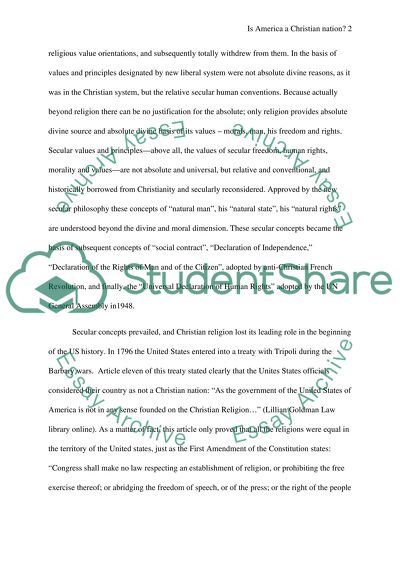Cite this document
(“Is America a Christian Nation Research Paper Example | Topics and Well Written Essays - 2500 words”, n.d.)
Retrieved from https://studentshare.org/family-consumer-science/1416084-is-america-a-christian-nation
Retrieved from https://studentshare.org/family-consumer-science/1416084-is-america-a-christian-nation
(Is America a Christian Nation Research Paper Example | Topics and Well Written Essays - 2500 Words)
https://studentshare.org/family-consumer-science/1416084-is-america-a-christian-nation.
https://studentshare.org/family-consumer-science/1416084-is-america-a-christian-nation.
“Is America a Christian Nation Research Paper Example | Topics and Well Written Essays - 2500 Words”, n.d. https://studentshare.org/family-consumer-science/1416084-is-america-a-christian-nation.


